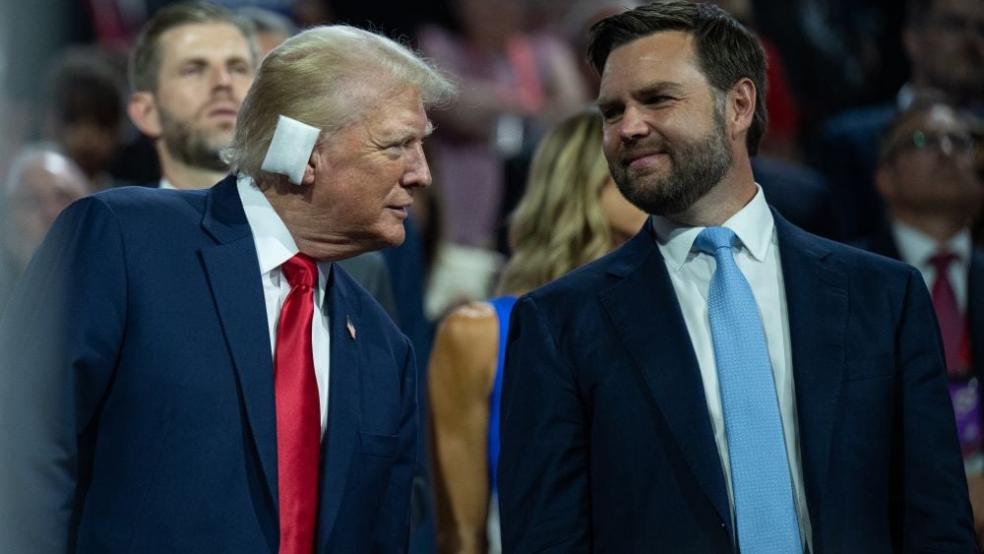Donald Trump’s choice of Sen. JD Vance as his running mate is being interpreted as cementing a MAGA shift in Republican policy preferences — one that is rattling the GOP’s economic old guard.
Vance has been at the forefront of a populist Republican faction seeking to break from traditional GOP economic ideology on issues including trade and labor unions. Given that, The Washington Post’s Jeff Stein notes that Trump’s elevating Vance to be his “is alarming traditional conservative policymakers and elite donors who opposed the pick.” Billionaire hedge fund manager Ken Griffin and Fox News mogul Rupert Murdoch reportedly were among those who opposed the choice.
“The emergence of Trump has caused a populist, aggressive side of the GOP to split off on economics, and Vance is one of the leaders of that populist caucus,” Brian Riedl of the conservative Manhattan Institute think tank told the Post. “Trump is much more economically populist, anti-free trade than traditional Republicans, and Vance has pushed hard to support this new populist economics in the GOP.”
Vance is now both heir to Trump’s MAGA movement and the standard-bearer of that economic populism, joined by GOP Sens. Marco Rubio and Josh Hawley.
“It’s clear to most leaders of the party that the future will be the Vances, the Hawleys and the Rubios — to have one of them be on the ticket is a very significant marker, or in some ways validation, of the direction the Republican Party is now heading on key economic issues,” Oren Cass, president of a conservative think tank, told the Post. “Vance articulates a very clear perspective on the failure of what he’ll call the ‘market fundamentalism’ of the GOP — the consensus economic policy of the last few decades.”
Politico’s Victoria Guida suggests that few Republicans have been more critical of the GOP’s conventional economic policies than Vance, “who has embraced not just tariffs, but also policies like a higher minimum wage and increased barriers to corporate mergers.” She also notes that some Republicans and business executives are wary of that approach — and goes so far as to label the 2024 GOP ticket a “repudiation of free-market conservatism.”
That has business leaders feeling uneasy. “CEOs are shocked as this is quite an odd choice to try to balance the ticket with [someone] so hostile to business,” Jeffrey Sonnenfeld, president of Yale University’s Chief Executive Leadership Institute, told Semafor.
Still, Vance may not venture all that far from Republican orthodoxy on key issues. He’s long been supported by libertarian billionaire Peter Thiel, and he reportedly signed the Americans for Tax Reform pledge to not support tax increases, for example.
Democrats and analysts on the left argue that the GOP’s economic populism doesn’t go nearly far enough. “What they’re trying to do is tap into white working-class cultural and social signifiers, while doing as little as possible to actually reduce incomes at the top and actually redistribute them down. It’s a delicate game they play,” Matt Bruenig, co-founder of the left-leaning People’s Policy Project, told the Post.





